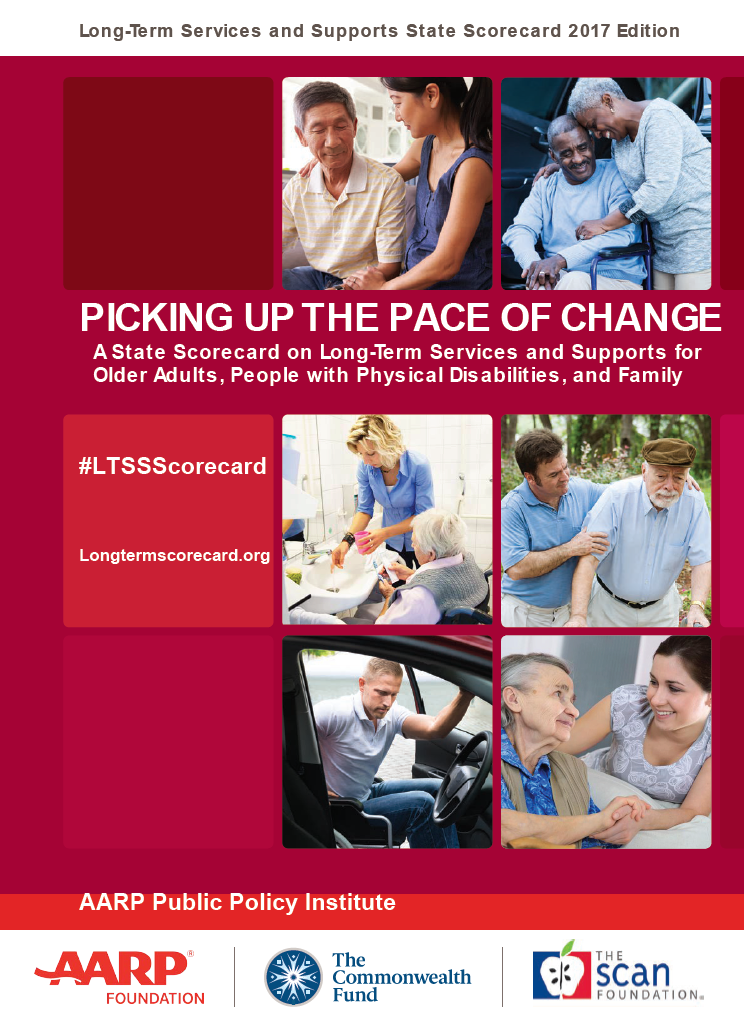AARP Hearing Center

Colorado ranks No. 8 in the nation when it comes to meeting the long-term care needs of older residents and people with disabilities, and AARP warns more must be done, at an accelerated pace, to meet changing demographic demands.
Specific areas of concern in Colorado include:
- Affordability and Access: Another year of low ranking on the Aging and Disability Resource Centers program indicator suggests that that Colorado has room to improve the states ADRC. The measurements in this indicator have changed, but the very low performance suggests that there is still a great deal to be done.
- Family Caregiving: While Colorado ranks well on the number of tasks that can be delegated to direct care workers and has made improvements to the scope of practice for advanced practice registered nurses, the state still has a way to go to improve flexibility for working caregivers.
This scorecard from AARP with support of the nation’s leading organizations behind quality long-term care – The Commonwealth Fund and SCAN Foundation – is a new, comprehensive state-by-state review. Colorado’s ranking is attached.
Picking Up the Pace of Change: A State Scorecard on Long-Term Services and Supports for Older Adults, People with Physical Disabilities, and Family Caregivers – the third in a series of reports – ranks each state overall and on 25 specific indicators in 5 key dimensions: affordability and access; choice of setting and provider; quality of life and quality of care; support for family caregivers; and effective transitions between nursing homes, hospitals and homes.
“The vast majority of older Coloradans want to live independently, at home, as they age — most with the help of unpaid family caregivers,” says Bob Murphy, director of AARP Colorado, which has more than 650,000 members age 50 and older. “Even facing tight budgets, Colorado is making clear progress to help our older residents achieve that goal. However, this Scorecard shows we have more to do, and we need to pick up the pace.”
Today, unpaid family caregivers provide the bulk of care for older Coloradans, in part because the cost of long-term care remains unaffordable for most middle income families. In Colorado, more than 600,000 residents help their aging parents, spouses and other loved ones stay at home by providing assistance with bathing and dressing, transportation, finances, complex medical tasks like wound care and injections, and more. The value of this unpaid care totals about $8 billion.
“When it comes to helping older Coloradans live in the setting of their choice, family caregivers take on big responsibilities,” said Murphy. “Many juggle full-time jobs with their caregiving duties; others provide 24/7 care for their loved ones. With every task they undertake, these family caregivers save the state money by keeping their loved ones out of costly nursing homes – most often paid for by Medicaid.”
That’s why AARP Colorado fought for the Caregiver, Advise, Record, Enable (CARE) Act and expanding nursing scope of practice. AARP’s model bill, The Caregiver, Advise, Record, Enable (CARE) Act — now passed in 36 states, Washington, D.C., Puerto Rico and the U.S. Virgin Islands — helps family caregivers when their loved ones go into the hospital, and as they transition home. Specifically, the CARE Act will require hospitals to:
- Record the name of the family caregiver when their loved one is admitted.
- Notify the family caregiver when their loved one is to be moved or discharged.
- Give instructions of the tasks the family caregiver will need to perform while caring for their loved one at home.
By expanding nursing scope of practices, outdated rules were modernized to broaden scope of practice; nurse practitioners are able to do their jobs, using all their advanced training and skills to care for patients — when and where care is needed. By delegating basic health maintenance tasks to caregivers, nurses have more time to focus on treating patients and support family caregivers.
The single strongest predictor of a state’s long-term care system is the reach of its Medicaid safety net. That’s why AARP also fought to expand services provided at home and in the community, by shifting funds away from more expensive nursing home care.
While Colorado does rank No. 8 in the percentage of Medicaid long-term care dollars for older adults and people with physical disabilities that support care provided at home and in the community, AARP Colorado is concerned about how the American Health Care Act would negatively impact Medicaid in Colorado is passed by Congress.
Of the 25 Scorecard indicators, many may be improved through state policy changes, pointing to the importance of AARP’s multi-state advocacy campaign, launched in 2014, to help older Americans live independently, at home, and the family caregivers that support them.
Long-term care (also called long-term services and supports) is a diverse set of services designed to help older people and those with disabilities; services can be provided in a person’s home, in a community setting such as an adult day center, or in a group residential facility like a nursing home.
The full state Scorecard, along with an interactive map of state rankings and information, is available at www.longtermscorecard.org.































































